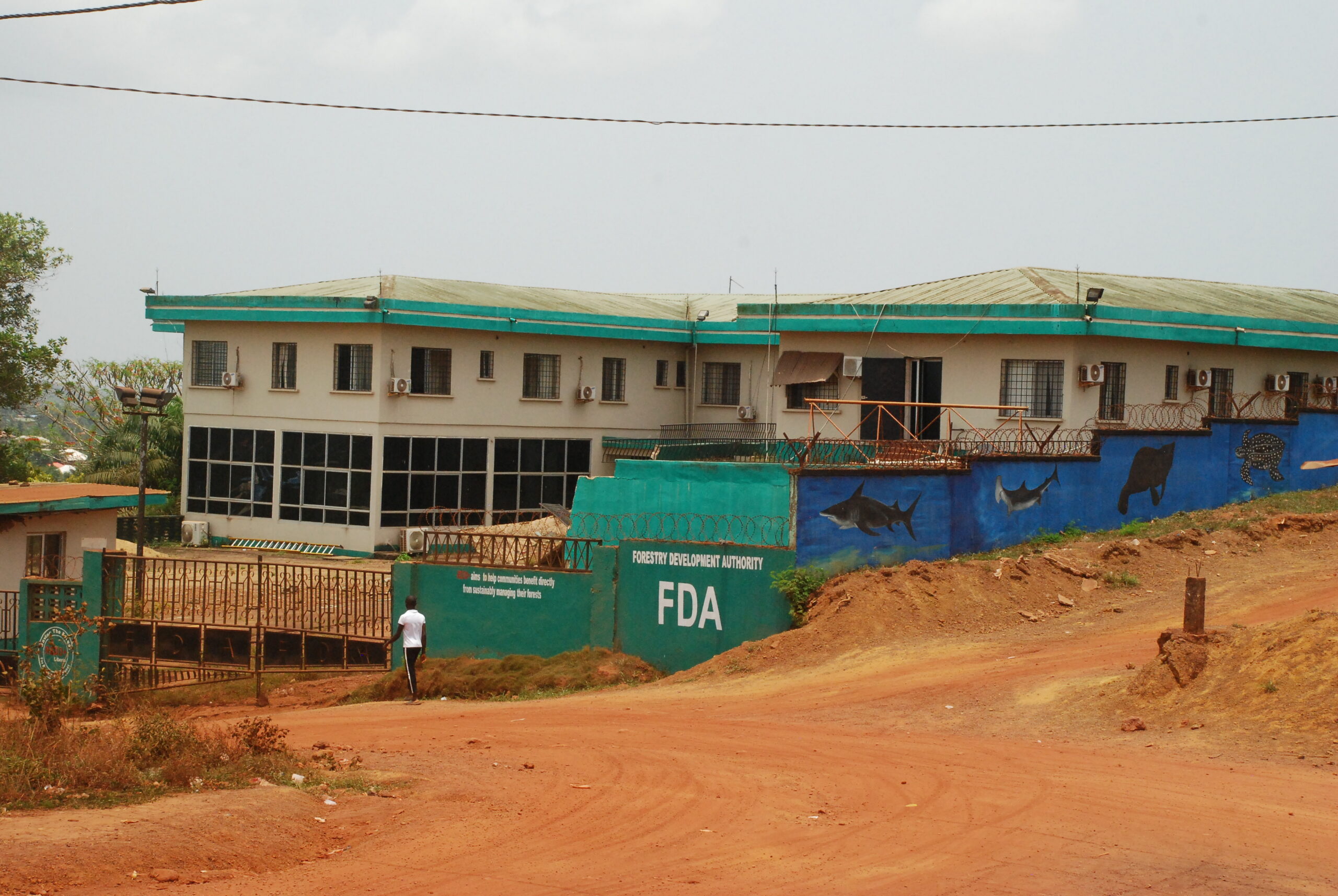Top: The Forestry Development Authority issues illegal export permits, including some from a shadowy contract in Nimba County. The DayLight/James Harding Giahyue
By Emmanuel Sherman
WHEIN TOWN, Paynesville – The Forestry Development Authority (FDA) lied that its Swiss contractor had declined to register logs from a plantation in Nimba County, which led it to award illegal permits, the quality company has said.
Responding to The Daylight’s investigation on the permits, the FDA had claimed that Société Générale de Surveillance “declined to certify teak logs within LiberTrace.” Without showing any evidence, it said the woods did not meet “technical requirements.” LiberTrace or the chain of custody is the system SGS created to track logs from the forests to the end users.
But the SGS vehemently dismissed the assertions.
“SGS has never been informed of any scientific management plantations to be applied in LiberTrace,” Theodore Aime Nna, SGS’ forestry project manager, told The DayLight via email over the weekend.
“Logs could be rejected through LiberTrace only if they are not traceable or illegally produced. Moreover, SGS does not certify any log in Liberia, but only verifies their history…,” Nna added.
The illegal permits mentioned in the report were granted to a Liberian-owned company called Rosemart Inc., and an Ivorian-owned Polgal Enterprise Inc. Rosemart secretly operates the Kpaytuo Plantation in the Tappita region. Polgal’s permit was tracked down in Cote d’Ivoire earlier this year by forestry officials there, according to a communication seen by The DayLight. Nearly all of the export fees the companies paid did not go to Liberian Revenue Authority (LRA), a review of their tax histories shows.
FDA published more of the permits in its justification of the violations, despite earlier denying this newspaper‘s request for them. The documents now show Rosemart has sold more than 2,000 teak logs between 2016 and 2020, valued at more than US$100,000, according to our analysis of the permits published so far. That is a far cry from the US$ 1-2.5 million Rosemart alone has traded, according to Trade Key, a Saudi Arabia-based online platform it trades on. Teak logs are expensive, long-lasting woods use in making bridges, ships and firearms.
SGS’ rebuttal aside, FDA’s excuse for awarding Rosemart the permit outside the legal system does not hold. Rosemart illegally exported 88.625 cubic meters of logs in 2020. That same year, Regnals International—which runs another plantation—exported only 62 cubic meters of logs, according to the Liberia Extractive Industries Transparency Initiative (LEITI). That is a difference of more than 26 cubic meters. Also, the FDA wrote on the permit that the logs were abandoned was another lie, as there is no record that the agency sought a court order to auction the woods as required by the Regulation on Abandoned Logs, Timber and Timber Products.
SGS created LiberTrace as a part of the reform of the forestry sector. The system is a crucial component of Liberia’s trade agreement with the European Union (EU) called the Voluntary Partnership Agreement (VPA). It has turned over the system to FDA’s legality verification department (LVD) after it was established but still plays a role there.
SGS is one of the world’s best quality companies. It has been listed a number of times as one of the 2,000 largest companies in the world by Forbes, an American business magazine that tracks such records. It has about 2,600 offices and laboratories worldwide as of July last year. It scored the highest mark between 2014 and 2019 on the Dow Jones Sustainability Indices, a key global ranking for the quality industry.




